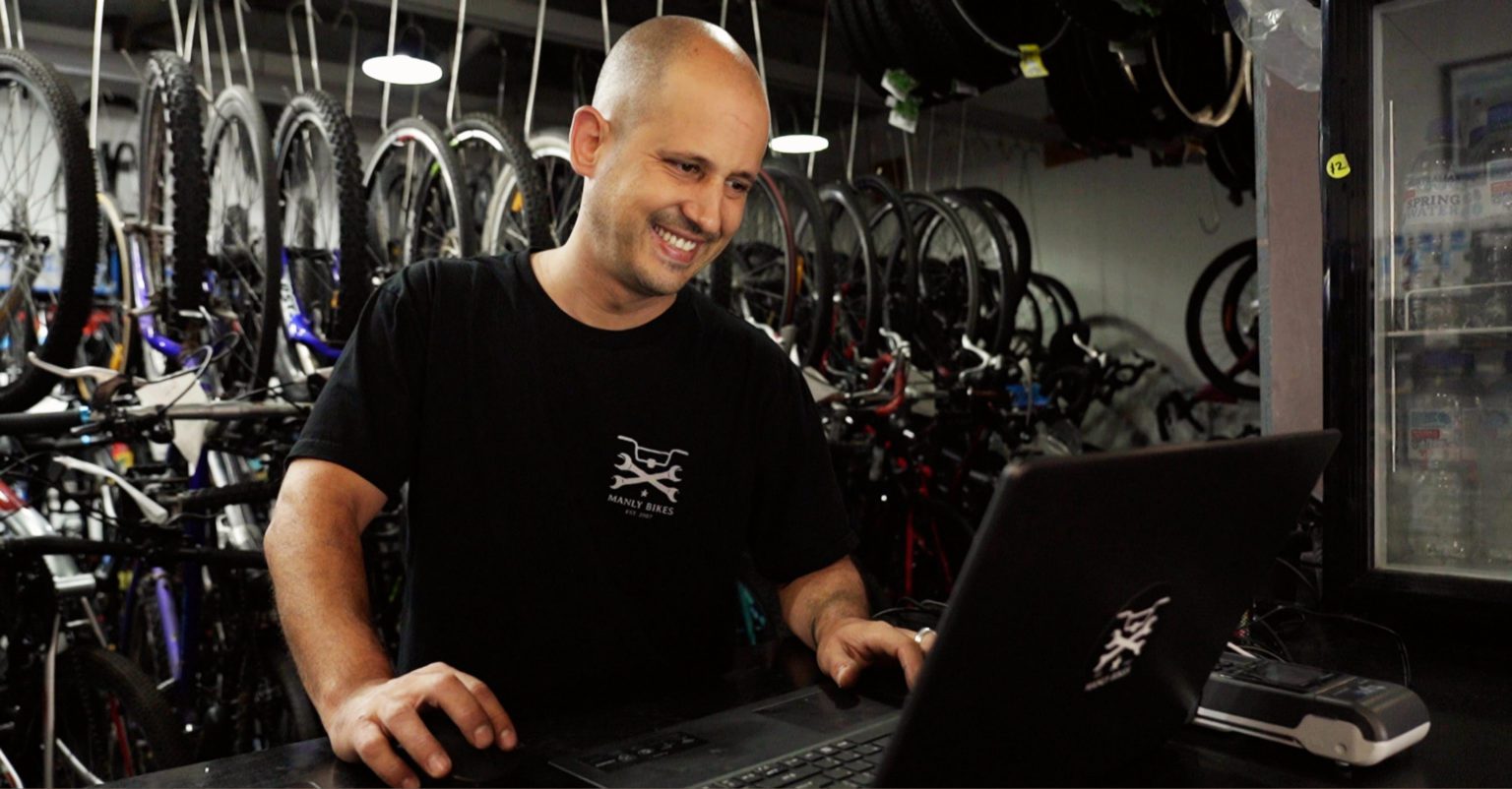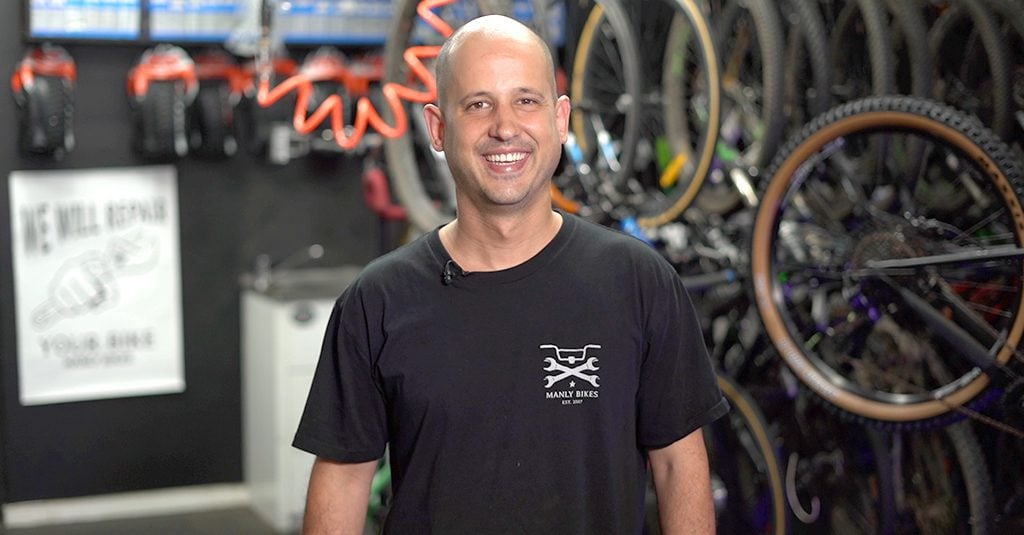How bike shop owner Francisco Furman has refreshed his approach to cash flow management, and the business benefits of seeing all his finances in one place.
At a glance
Here’s a snapshot of the insights from our interviewee:
- Post-pandemic, Francisco shifted the focus of his bike hire business Manly Bikes to repairs and servicing.
- His new approach to managing cash flow involves keeping his stock inventory as low as practically possible.
- Viewing all his finances in one place lets him see at a single glance where to allocate revenue and what gaps exist in his cash flow forecast.
- Accurate cash flow forecasting can be challenging in uncertain times – but Francisco is planning for growth by expanding online.
A new approach to cash flow management
Francisco Furman is the amicable and upbeat Argentinian-born owner of Manly Bikes, a bike hire and repair shop in Sydney’s busy Manly Wharf.
When he originally bought the business, he stuck to bike rentals, which proved popular at peak periods – such as the hot Sydney summer – before dipping during the colder months.
Surviving the pandemic, however, took innovation. When lockdowns had people heading indoors his business’s main revenue stream – bike rentals – dried up, so Francisco morphed Manly Bikes into a bike services and repair shop.
The leap required a steep learning curve, long hours on the job, and some further adaptability when two high-end bicycles were stolen from the store in late 2021. A Prospa Small Business Loan, however, enabled Francisco to overcome this hitch and pay for new stock quickly and easily.
Francisco says the shift in business model has required him to fundamentally change the way he manages the business’s cash flow.
“Before COVID, it was easy to forecast revenue because we had historic numbers across nine years of operations,” he says. “When we changed the business model from bike rentals to bike services, the amount of money we poured into buying stock grew exponentially – probably five times.”
To adjust to this new way of working, he has taken on a new strategy to manage cash flow – keeping his stock inventory as low as practically possible.
“What we’re doing now to keep our cash flow healthy is having the least stock possible,” he explains. “We always have products in stock at the shop, but I’m trying to avoid becoming overstocked.”
This means making smaller supply orders and only ordering when in-store stock drops to a few items. It’s a strategy that has so far proved successful.
“I would rather have more money on hand than be really struggling,” says Francisco. “We might be paying for more freight than we should, but it’s better for the business. Our cash flow is healthier.”
The benefits of an all-in-one view of cash flow
In a given month, Francisco handles all manner of transactions, from ordering new bike stock, to paying suppliers for stock purchased previously, to scheduling and making repairs for customers – all while maintaining the bike hire side of the business.
He sees a clear value in processing all of those transactions in one place in order to keep track of them all. That means using a single piece of accounting software for everything.
“I connect my bank accounts, suppliers, everything,” he says. “I can see when I’ll have to make payments in the future, and it gives me an idea of how much revenue I’ll need to cover those payments.”
Centralising all of this information also helps him identify how long he has left to pay suppliers by the deadline, and during which periods of the month his cash flow falls a little lower.
And more broadly, having a deeper understanding of his business’s cash flow and more clarity around the patterns of his business’s cash flow has helped instil Francisco with the confidence to grow.
“What I do with the cash I’m saving by not having too much stock is improve our marketing,” he says. “Mostly Google ads and merchandising – we’re making t-shirts and hats, for example.
“The market is still pretty unpredictable, but if you have all of the numbers in one place, it makes it easier to understand where you’re standing, where you’re going, and what you have to pay. If you can centralise everything, it makes everything easier.”
How Francisco is planning for growth
Francisco explains how gaining a Small Business Loan from Prospa not only helped him cover for a shortfall (“At one point, I bought about 25 bikes and had to pay the supplier before I sold them.”), but also set him up for growth during periods when that growth might otherwise be impacted by external factors.
“We rely on the weather,” he says. ”If it rains, it really affects us, because people don’t go out riding bikes.”
Add in other uncertainties around rising inflation and the economy, and Francisco is cautiously optimistic about what the future might hold – which makes it all the more important, he says, to find alternate ways to boost cash flow and lend certainty to his cash flow forecasting.
“Nowadays, it’s hard to forecast how sales will go,” he says. “The hardest part of cash flow is forecasting. We’ve already started selling parts and accessories online, and will continue to work on that. I’m investing some of the money we’re saving by keeping less stock into that.”
Although he recognises the abundance of online players means greater competition for customers, the space for retailers to achieve growth can be limited: “the way to really grow exponentially is online”.
He adds:
“And if things go south, you can always rely on financial help from Prospa.”
Simplify how you manage your business’s transactions. The Prospa Business Account is a free transaction account that can help make managing your cash flow simpler.









